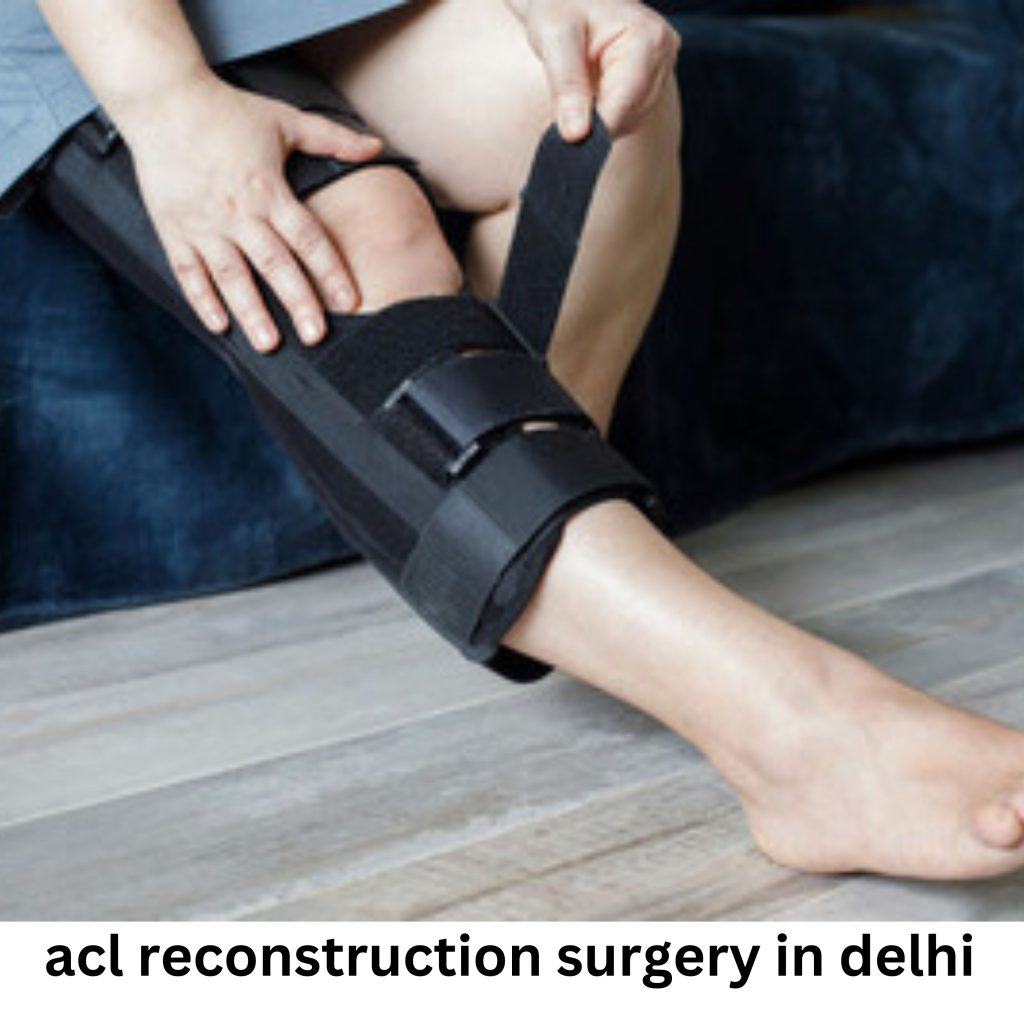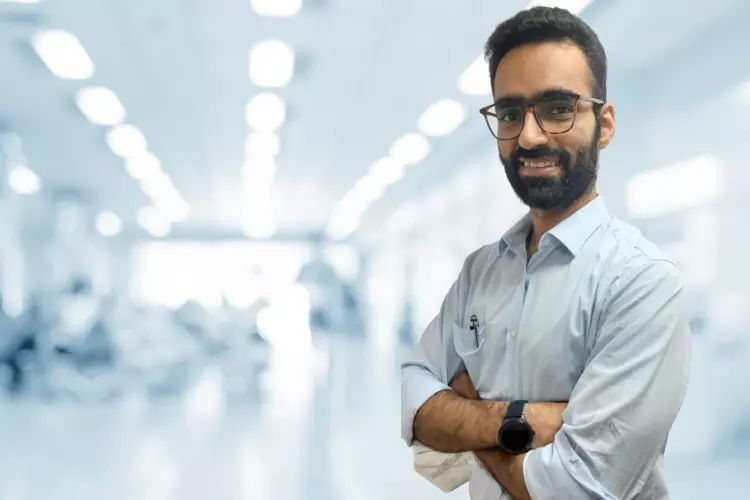
Acl Injuries And Their Impact
The anterior cruciate ligament (ACL) is a critical component in maintaining the stability and function of the knee joint. Injuries to the ACL are common, especially among athletes participating in sports that involve sudden stops, jumps, or changes in direction, such as soccer, basketball, and skiing. An ACL injury can range from a mild sprain to a complete tear, often resulting in symptoms like pain, swelling, and a significant loss of knee function.
The impact of such an injury extends beyond physical discomfort; it also affects an individual’s ability to engage in daily activities and can greatly inhibit athletic performance. This can lead to emotional and psychological stress, as individuals grapple with their limited mobility and the potential disruption of their career or lifestyle.
Additionally, an untreated ACL injury can lead to further complications, including damage to other structures in the knee, such as the meniscus or cartilage. This can hasten the onset of osteoarthritis, further exacerbating knee problems. Rehabilitation and a structured recovery plan are crucial components for those seeking to regain full function of their knee post-injury. Understanding the implications of an ACL injury and the subsequent need for appropriate surgical intervention and physical therapy is essential for individuals in making informed decisions about their health and recovery strategy.
Effective management of an ACL injury can facilitate a return to pre-injury levels of activity and improve overall quality of life.
Overview Of Acl Reconstruction Surgery
ACL reconstruction surgery is a medical procedure aimed at restoring stability and function to a knee joint that has experienced a torn anterior cruciate ligament (ACL), which is a common injury among athletes and physically active individuals. In Delhi, this procedure is performed by highly skilled orthopedic surgeons who use advanced techniques to ensure effective outcomes and facilitate a smooth recovery process.
The surgery typically involves replacing the damaged ligament with a graft, which can be harvested from the patient’s own body, such as the hamstring tendon or the patellar tendon, or it could be sourced from a donor. The choice of graft often depends on the surgeon’s expertise and the patient’s specific needs.
Patients generally undergo general anesthesia, and the procedure is performed arthroscopically, which means using minimally invasive techniques involving small incisions and specialized instruments. This approach minimizes tissue damage, reduces pain, and promotes quicker recovery. Post-surgery, patients are usually required to stay in the hospital for observation for a short period and then engage in a structured rehabilitation program to regain strength and flexibility, which is critical for successful recovery.
In Delhi, the availability of state-of-the-art medical facilities and experienced professionals ensures that individuals undergoing ACL reconstruction surgery are well-supported through every phase of treatment and recovery.
Choosing The Right Surgeon In Delhi
Choosing the right surgeon for ACL reconstruction surgery in Delhi is a crucial decision that can significantly influence your recovery and overall outcome. Delhi, being a major hub for medical procedures, offers a plethora of options ranging from highly experienced surgeons to cutting-edge medical facilities. When considering a surgeon, it’s essential to evaluate their credentials, experience, and the reputation they hold within the medical community.
A surgeon with specialized training in orthopedic or sports medicine, particularly with a focus on knee surgeries, is often preferable for this type of procedure. It’s worthwhile to seek out those who routinely perform ACL reconstructions, as their familiarity and expertise can translate into more effective surgery and a smoother recovery process. Patient reviews and testimonials can offer insightful perspectives on a surgeon’s bedside manner and success rate, complementing the technical credentials listed.
Additionally, personal referrals from other healthcare professionals can be invaluable, as they often have firsthand knowledge of a surgeon’s capabilities. Another important factor to consider is the hospital or clinic where the surgery will be performed. State-of-the-art facilities often have access to the latest technologies and a more comprehensive spectrum of postoperative care, which can enhance your overall experience. Taking the time to carefully research and choose the right surgeon will help ensure the best possible outcome for your ACL reconstruction surgery in Delhi.

Preparing For Your Acl Surgery
Preparing for your ACL reconstruction surgery in Delhi involves several important steps to ensure a smooth process and optimal recovery. First, it is crucial to follow the guidance of your healthcare provider regarding any pre-operative guidelines. This often includes certain lifestyle and diet modifications. Smoking should be avoided as it can impede the healing process. Maintaining a balanced diet rich in nutrients will help prepare your body for surgery and recovery.
Your surgeon will likely require you to undergo some medical tests such as blood work, an electrocardiogram, or imaging scans to ensure you are in good health for the procedure. Additionally, it might be necessary to stop taking certain medications like blood thinners a few days prior to surgery to reduce the risk of excessive bleeding. Physical preparation is also vital, and your doctor or physiotherapist may recommend exercises to strengthen the surrounding muscles of the knee to facilitate a quicker recovery.
Planning for post-surgery logistics is another critical component; arranging transportation home and ensuring you have support systems available such as family or caregivers to assist you during the initial recovery period are key to your comfort and safety. Lastly, adhere to any specific fasting instructions the night before your surgery to ensure anesthesia can be administered safely.
The Surgical Procedure: What To Expect
Undergoing ACL reconstruction surgery in Delhi involves a precise and expertly conducted medical procedure. The surgery starts with the patient being administered either general or regional anesthesia to ensure comfort and prevent any sensation during the operation. The surgeon then makes small incisions around the knee to allow the insertion of a tiny camera, known as an arthroscope. This device provides a clear view of the internal structures of the knee on a monitor, offering the surgeon detailed insight into the area requiring repair.
The damaged anterior cruciate ligament is carefully assessed and cleared away if necessary to make room for a new tendon graft. This graft, often sourced from the patient’s own hamstring or patellar tendon, or alternatively from a donor, is meticulously positioned and secured with surgical screws or other fixation devices to replace the torn ACL. During the procedure, the surgeon will pay close attention to the alignment and tension of the graft to ensure optimal restoration of knee function.
Throughout the surgery, sterile techniques and precision instruments are used to minimize the risk of infection and collateral damage to surrounding tissues. Once the graft is securely in place, the incisions are closed with sutures or surgical staples, and a sterile bandage is applied to protect the healing area.
Recovery And Rehabilitation Post-Surgery
Recovery and rehabilitation after ACL reconstruction surgery in Delhi is a crucial phase that plays a significant role in ensuring the success of the procedure. Typically, this process begins immediately following the surgery, with the primary goals being to reduce swelling, regain knee mobility, and maintain muscle strength. In the initial days after the surgery, patients are encouraged to rest and apply ice packs to the knee to minimize swelling.
Elevating the leg and taking prescribed medications can also help manage pain and inflammation.
A personalized physical therapy program is usually initiated shortly after the operation. Under the supervision of a skilled physiotherapist, patients begin with gentle range-of-motion exercises, gradually progressing to more strenuous activities as their condition improves. Strengthening exercises targeting the quadriceps, hamstrings, and calf muscles are vital components to enhance knee stability. Balance and proprioception exercises are incorporated over time to restore normal knee function and prevent future injuries.
It’s essential for patients to follow their rehabilitation program diligently and communicate openly with their healthcare providers about any concerns or difficulties they experience. Returning to full activity, especially for athletes, may take anywhere from six months to a year, depending on the individual’s progress and adherence to the rehabilitation regimen. With commitment and guidance, most patients can expect to return to their pre-surgery activity levels.

DR VIKRANT KHANNA
Dr. Vikrant Khanna, a distinguished orthopedic surgeon at Kalyani Hospital, specializes in ACL reconstruction surgery in Delhi. With extensive training and experience, Dr. Khanna is dedicated to restoring knee stability and function for patients suffering from ACL injuries. At Kalyani Hospital, he employs advanced surgical techniques and personalized rehabilitation programs to ensure optimal recovery and a swift return to daily activities
Frequently Asked Questions (FAQs)
What is ACL reconstruction surgery, and who should consider it?
ACL reconstruction surgery is a procedure to replace a torn anterior cruciate ligament in the knee, commonly recommended for individuals experiencing knee instability or those aiming to return to active lifestyles.
What are the different types of ACL reconstruction surgeries available in Delhi?
In Delhi, ACL reconstruction surgeries include autografts (using the patient’s tissue), allografts (donor tissue), and synthetic grafts, with the choice depending on individual needs and surgeon recommendations.
How long is the recovery period after ACL reconstruction surgery?
Recovery typically spans 6 to 12 months, involving physical therapy and rehabilitation to restore knee strength and function.
What factors influence the cost of ACL reconstruction surgery in Delhi?
The cost varies based on the surgical approach, type of graft used, hospital facilities, surgeon’s expertise, and additional services like physiotherapy.
